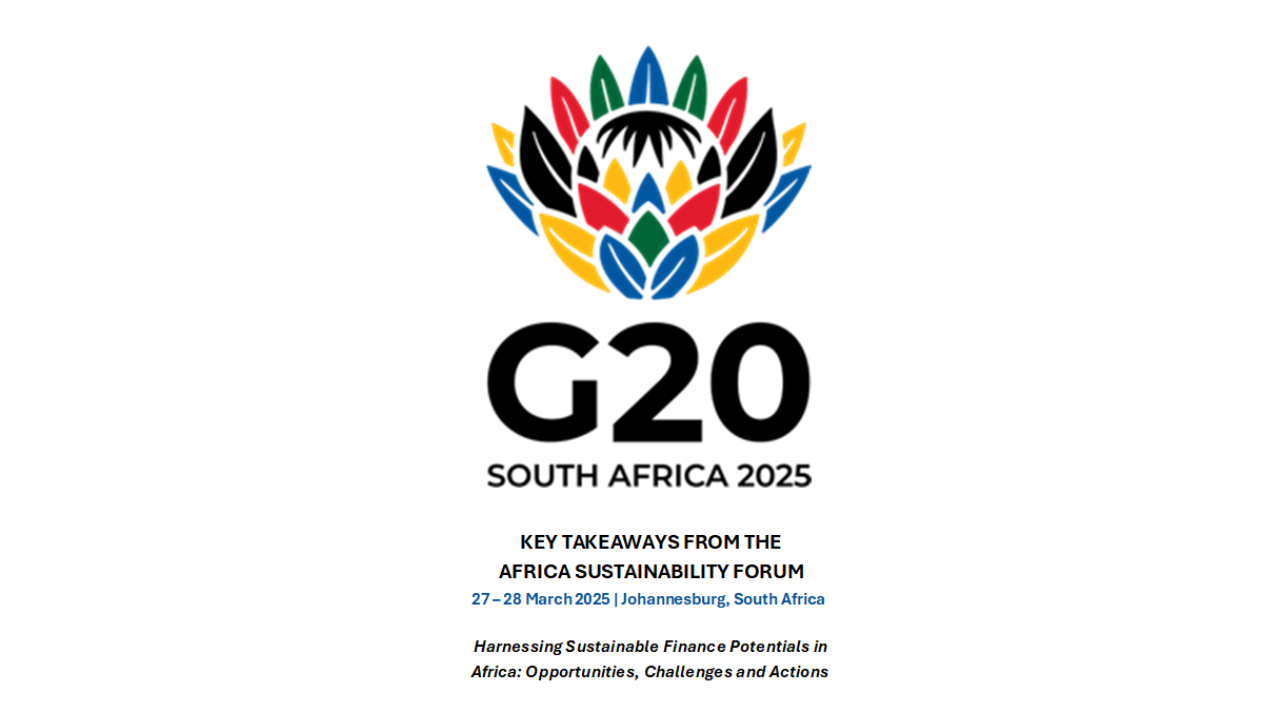
The Africa Sustainability Forum, co-hosted by the Capacity-building Alliance of Sustainable Investment (CASI) under the G20, the South African Reserve Bank (SARB), the National Treasury, and the United Nations Conference on Trade and Development (UNCTAD), was held during March 27-28, 2025 in Johannesburg. It convened over 240 participants from 24 countries and jurisdictions—policymakers, financial leaders, industrial experts, multilateral development banks, and aid agencies—with many more joining online.
The Forum focused on the G20 South African Presidency’s 2025 sustainable finance priorities, emphasizing opportunities, challenges, and actions needed for harnessing sustainable finance across Africa.
Key Messages from the Forum:
- Activating Sustainable Finance Markets
- Taxonomies are critical for classifying green activities, labelling assets, and incentivizing green finance.
- The Multi-Jurisdiction Common Ground Taxonomy (MCGT) can align African taxonomies with global standards, reducing fragmentation and enabling cross-border green capital flows.
- Dr. Ma Jun encouraged African participation in developing the next version of the MCGT.
- Providing Incentives for Green Projects
- Fiscal tools like concessional finance, tax incentives, and interest rate subsidies can reduce capital costs, particularly for renewable energy, sustainable agriculture, and green transport projects.
- Concessional funding can bridge financing gaps in risky, early-stage projects.
- Structuring Blended Finance Mechanisms
- Combining concessional and commercial funding with de-risking tools (e.g., guarantees, first-loss tranches) attracts private capital to green projects.
- Scaling Up Voluntary Carbon Markets (VCMs)
- There is a need to align VCM standards with the Core Carbon Principles (CCP), adopt digital MRV tools, and establish national registries to reduce costs and improve scalability.
- CASI and UNCTAD called for collective G20 actions to improve transparency and efficiency.
- Embedding Revenue Streams in Adaptation Projects
- Many adaptation projects, such as sponge cities and agroecological restoration projects, need to use innovative business models and integrate income-generating components to enhance commercial viability.
- Building Capacity for Sustainable Finance Ecosystems
- Emerging market economies can address technical, institutional, and human resource challenges through participating in CASI’s initiatives, including technical assistance, forums, webinars, and online learning.
The Forum highlighted sustainable finance’s potential to accelerate Africa’s green transition by leveraging taxonomies, blended finance mechanisms, voluntary carbon markets, and capacity-building initiatives. These efforts can attract international investments and help achieve Africa’s sustainable development goals.
Full Report Available: https://www.casi.net/publications

